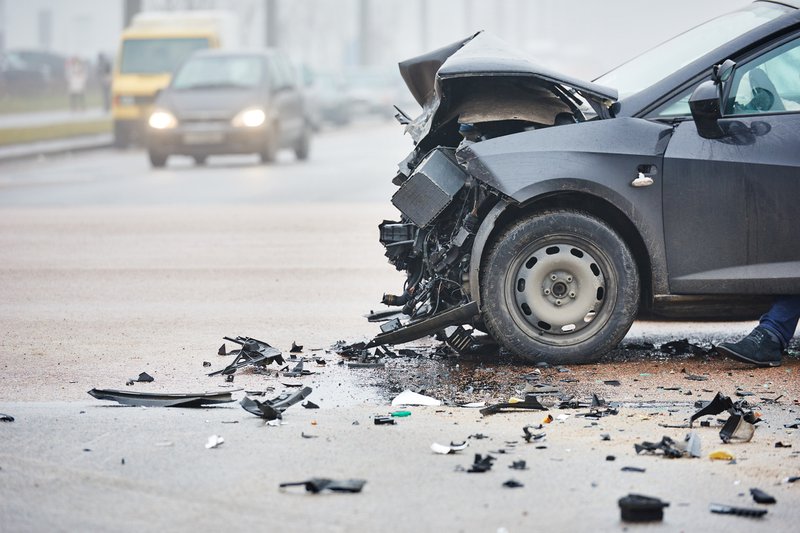Seven safety tips for your long road trip this holiday
Updated | By Lifestyle Reporter
Midas has shared seven tips to ensure you arrive at your holiday destination safely.

Many people will be travelling to spend the festive season with their loved ones, while some will be taking their families on vacation.
But, with all the accidents that happen on the roads during the holiday season, it is important to prepare for the trip and ensure you are safe.
According to the Automobile Association (AA) of South Africa, over 135,000 people have lost their lives in road accidents over the past decade. This has been declared ‘a national crisis’ by the AA and comes at a time where road safety is a challenge in our country.
“It’s natural to feel somewhat anxious before leaving on a long journey to your holiday destination,” says Brett Ferreira, Franchise Executive at Midas,
“Most of us have reached burnout and desperately need a holiday promising rest and relaxation, yet we’re concerned about the potential risks associated with a long drive on busy South African roads."
In order to make your trip as safe and pleasant as possible, it’s important to take charge of every aspect of the the journey that you can control; before you depart; and to approach it in a cautious and balanced manner.
Midas offers the following tips on how to prepare and embark on a long drive - with optimal safety in mind:
Prepare, Prepare, Prepare
Make sure your vehicle is ready for the trip. It’s easy to overlook low tyre tread or a slight steering pull in the grinding last few weeks of the working year. Small issues like wheel alignment or tyres taking pressure from an increased load, easily become larger (even fatal) ones. So, factor in time to prepare.
Buckle up and check your safety features
It’s important to ask yourself, "How safe is my car?"
Safety belts are critical for every passenger, no matter where they sit. The instruction to “Buckle up!” is non-negotiable. Statistics show that wearing a seatbelt makes all the difference in protecting from possible injury, should an accident occur. Also in reducing injury-severity and saving lives. Younger toddlers and babies need to be strapped safely into an approved car seat and unbuckling for a snack shouldn’t be an option. To help avoid little ones getting restless, place a bag of travel activities within their reach or possibly a tablet with their favourite movies downloaded on it.
Whilst many cars in South Africa still don’t come fitted with airbags (standard in many countries overseas), if yours does, it’s best to get them checked before you leave. Your approved dealer should be able to test they’re in good working order. Other essential built-in safety features include: ABS brakes and ESC (Electronic Stability Control) mechanisms. Also, don’t forget the First Aid kits.
Get a good night’s rest and be at your best
Don’t overdo things the day before you leave. Get at least seven hours sleep the night before. Health-niggles related to your back, eyesight or ability to concentrate should be seen to prior. Keep your mind fresh on the trip by stopping every 200km or so. Fatigue is one of the biggest dangers on our roads.
Know your route
Whether you're using a map, an app or Satnav, know the route and distance you're taking and keep to familiar ones if possible. If you’re venturing into unknown or remote areas, factor-in extra time and take emergency supplies like water, snacks, and a power bank.
Defensive driving
Always apply the defensive driving principle. Rather be cautious and look out for other drivers’ erratic behaviour. Statistics show that alcohol is a factor in 58 per cent of road fatalities in SA! Speeding and using a cell phone while driving are other contributing factors.
Choose the smart speed
Going too fast or too slow can significantly increase the risk of an accident. Go too slow and everyone will want to get past and take chances - putting you into the path of danger. Drive too quickly and you may not able to slow down in time if something goes wrong. It’s safest to stick to the speed limit. Never overtake if you're not sure you'll get to the other side safely and always leave a margin for error.
Drive during the day
Many prefer driving long-distance at night because the roads are quieter. Yet stats show that driving then is a lot more dangerous. There’s obviously a significant decrease in visibility and diminished speed/distance judgement. Also, more drunk drivers. You may contend with more traffic and summer heat when driving during the day, but it's still, by far, the safest.
Your holiday should start from the moment you leave home, make the most of your journey and see the travel time together as an adventure that good memories are made from!
Image courtesy of iStock/ kadmy
READ: OMG: 5 new family traditions to start over the holidays!
Article source: Press release from Scoop Communications.
Show's Stories
-
A queue at the drive-thru? Not for this taxi
Don't you just hate being stuck at a drive-thru? Well, this South Africa...
East Coast Breakfast 21 hours ago -
Durban traffic: Things motorists do when they see traffic
This is an example of what not to do if you get stuck in traffic this Ea...
Carol Ofori 22 hours ago